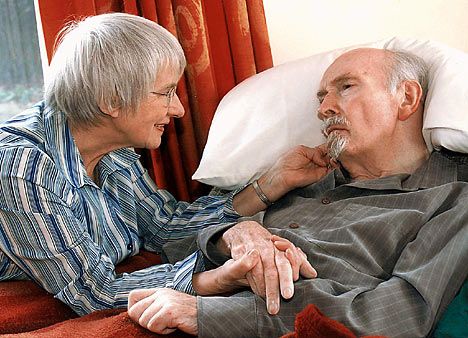New publications
Periods when you can prevent Alzheimer's disease have been named
Last reviewed: 01.07.2025

All iLive content is medically reviewed or fact checked to ensure as much factual accuracy as possible.
We have strict sourcing guidelines and only link to reputable media sites, academic research institutions and, whenever possible, medically peer reviewed studies. Note that the numbers in parentheses ([1], [2], etc.) are clickable links to these studies.
If you feel that any of our content is inaccurate, out-of-date, or otherwise questionable, please select it and press Ctrl + Enter.
Alzheimer's disease is often called a disease of the elderly, but the fight against this disease must begin in school and last a lifetime. This is the conclusion reached by researchers at the Alzheimer's Disease Research Foundation in the UK.

Alzheimer's disease is the most common cause of dementia among older people. As a rule, this disease can develop after 60 years. Alzheimer's disease is characterized by confusion, memory impairment, thinking and has a negative impact on a person's daily life.
The results of the scientists’ research are presented on the pages of the scientific publication “PLoS ONE”.
Read also:
- 7 Causes That Trigger Alzheimer's Disease
- Alzheimer's disease can be predicted 20 years before its development
Experts have managed to identify three stages of human life during which prevention of this disease is especially effective.
First stage
The first stage is the period when a person studies, receives education and knowledge. It begins, as is known, in early childhood - from kindergarten and lasts until graduation from university.
Second stage
The second stage is the longest, because it takes up the largest segment of human life. This period covers the entire working activity of a person, his career.
Third stage
The third stage falls on the retirement age of a person, when already being at a respectable age, he has the opportunity to devote more time to family, friends and grandchildren. All this helps to preserve and maintain the acuity of mental activity for the longest possible period of time, and also contributes to longevity, providing additional years, months and days of life.
The study involved 12,500 pensioners, residents of the UK. Experts asked them to answer questions about their education, main job, people who surround them and can support them in difficult times. Pensioners were also asked whether they attend any clubs or classes of interest, and how often they communicate with their neighbors. Their mental health was monitored by experts for sixteen years.
As it turned out after the observations were completed, more socially active people who had many friends, enjoyed spending time with grandchildren and family, and also visited any communities, were less susceptible to the risk of developing memory problems, they were less likely to become victims of Alzheimer's disease.
This study is somewhat different from all previous ones conducted in this direction. This research of scientists demonstrated a direct relationship between an active, lively mind, vigorous activity and a slower progression of severe dementia.
The longer a person received education and the more mental work they did, the more they reduced their risk of developing Alzheimer's disease.
Activity, constant activity and communication with others reduce the risk of even minimal memory impairment to a minimum, and also reduce the risk of their development into more significant disorders. In addition, active mental activity allows to reduce the duration of the most recent and severe stage of Alzheimer's disease.
